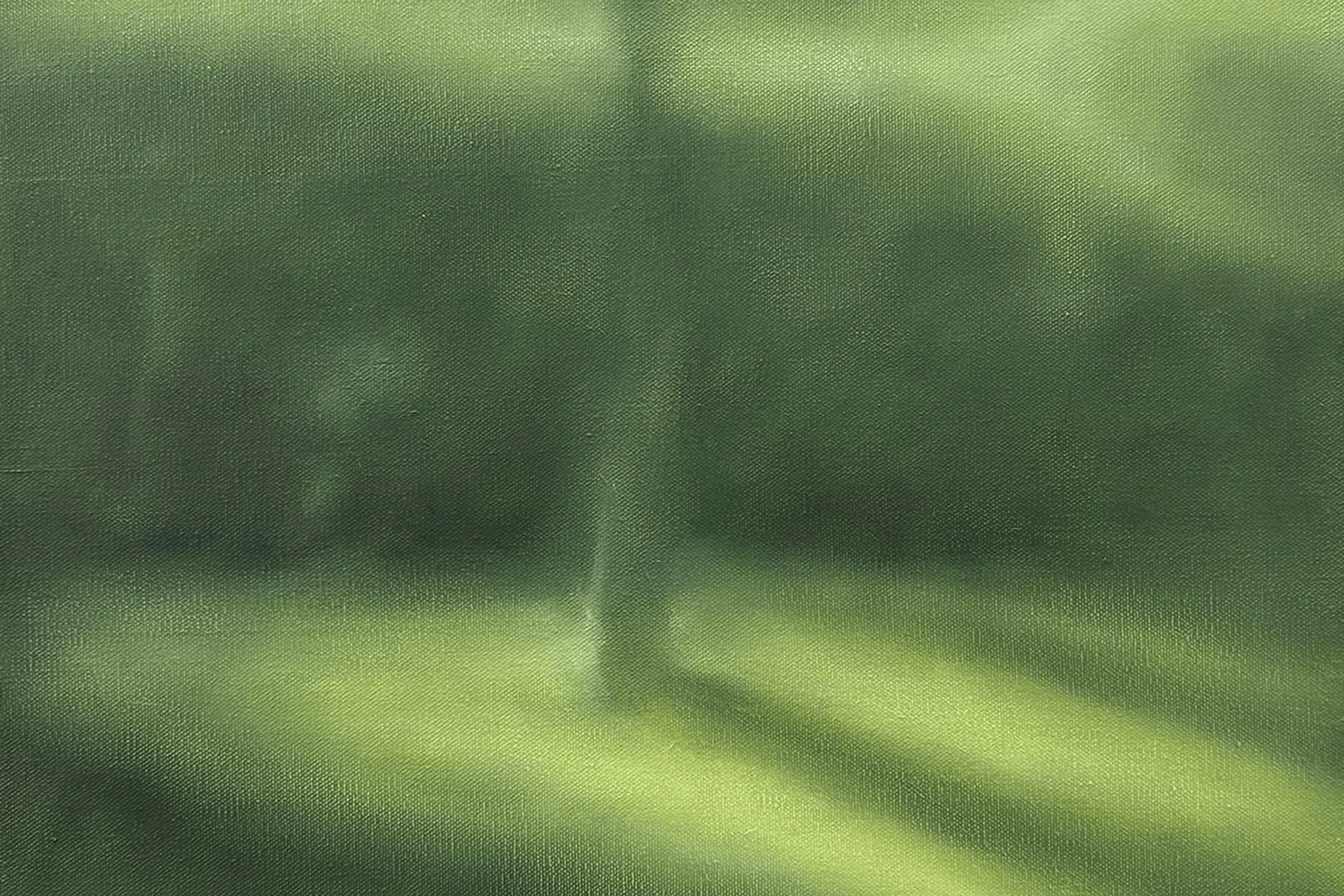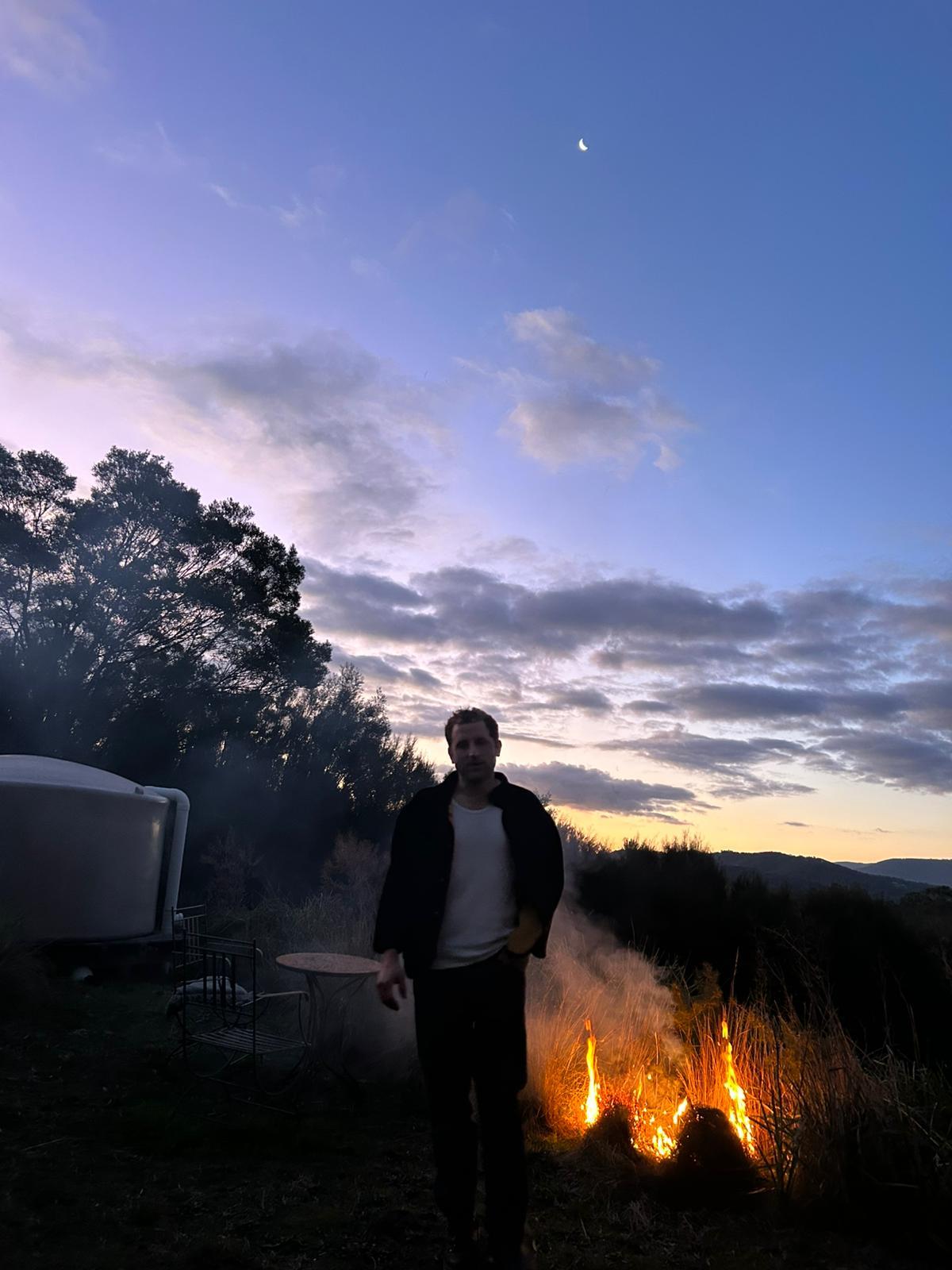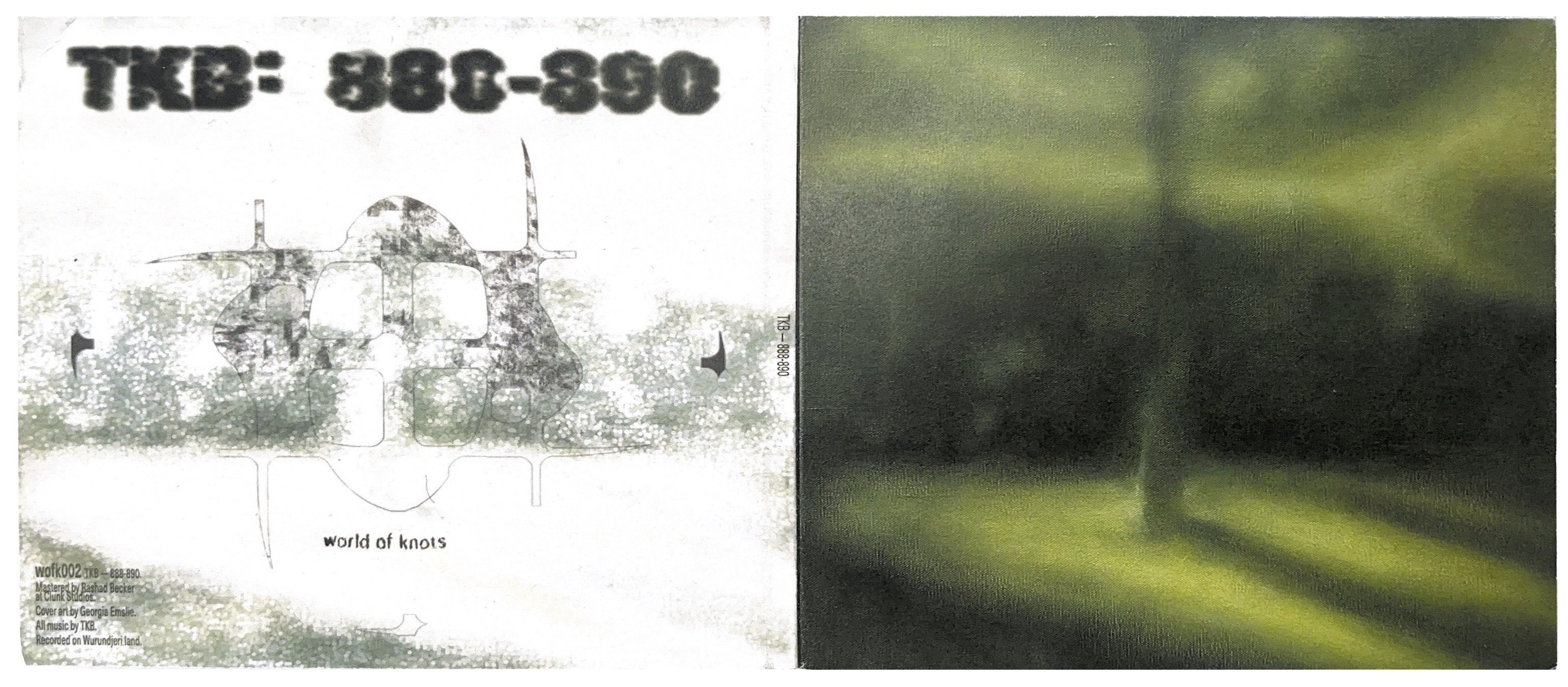 MUSIC
MUSIC
TKB's '888–890': Luddite Techno for (Overly) Modern Times
The second release from experimental label World of Knots presents a dive into limitations and place, writer Lilly Grainger explains.
‘888-890’ is the latest from producer TKB, a collection of ‘luddite techno’ experiments recorded from the artist's home on Wurundjeri land in the rural bush of Victoria.
This is the second release from Gadigal Land/Sydney-based label World of Knots, a follow-up to their debut compilation ‘001’, a collection of raspy textural sounds and ‘outsider’ electronic music. In this way, TKB’s ‘888-890’ is a perfect fit for the label. An exploration of ‘music without antithesis,’ unfurling soundscapes and round-about sound design met with ‘obsessive fervour’, in their own words. An intensity and passion for creation is softened by an openness to new ideas, which takes form in sounds that feel unrelated yet cyclical.
In every interaction of his work, TKB’s artistry always comes back to his surroundings: restless ambient or ‘dance club’ music sculpted by the outdoors.
“I was obsessively listening to anything I could find by him, so I reached out, and quite quickly we put together this album.” Label head gi recalls, “I had initially expected him to be the 3rd or 4th release, but here we are.”
Ahead of our interview, TKB had taken a moment to revisit the record. “I had to listen back to ‘888-890’ to remind myself. I work on things in a bit of a fever,” he acknowledges. “Once something is on my mind - I can’t get it out, so I work on it in any spare moment until it's finished.”
TKB’s reflections in many ways affirm the album's directive: ‘best heard without context,’ pieced together by contractions and careful detail. The record seems to capture the strange feeling of finishing a performance or escaping the whims of a heavy dream; so visceral in the moment, it feels impossible to forget - yet we do. We are left instead with the feeling the record conveys: explorative, dark, swirling, and all-encompassing. It’s a sonic postcard to TKB’s home in Victoria, capturing its essence in a way I’m not sure I’ve quite come across before.

TKB at home on Wurundjeri land, Victoria
This uniqueness was precisely what caught the attention of label head Gi, excited by the many contradictions that inhabit his work. TKB’s 2023 release through Where to Now? Records: Dream Nightclub presents ‘dance club’ (as the artist describes), was written from a river shack by a decidedly non-club-goer. “I've attempted to make the music that I hear in the dance clubs I dream about,” his Bandcamp description reads. “I've never really been to a dance club, but I'm trying to be sophisticated.”
When TKB’s ‘888-890’ passed through my inbox, I had an expectation of what a body of experimental techno from Melbourne might sound like: inspired by its embraced outdoor music culture. It’s a sound that uses organic elements and field recordings to amplify the electronic arrangement. However, TKB’s work becomes its own landscape: under his direction, organic elements aren’t a detail but the project in and of itself.
Such an embodied creation, of course, comes from TKB’s working environment; “I recorded the acoustic elements of ‘888-890’ in a dry billabong below the house, beside the Birrarung,” he shares. “It’s been a dry year. I wanted the sound of the environment to be part of the fabric of the instrument track rather than a separate field recording.”
Like his field recordings, TKB’s indoor creations are marked with a certain thriftiness, a creativity that feels forgotten the more advanced our production work has become. “I do better with limitations.” Shares TKB, “so for this album, I allowed myself 4 stems per track. This means little isolation between sounds, sometimes using techniques I used as a teenager before I had a four-track recorder. Recording something onto cassette, playing it back through the speakers and recording myself playing to the track coming through the speakers,” he recalls.
Stripping things back is where the release blooms, a basis of contradiction built in part through meticulous electronic arrangements and samples strung together with drum beats composed on literal pots and pans found in TKB’s kitchen.
In this way, almost everything about the record is homegrown, including its cover art, designed by TKB’s partner, Georgia Emslie, who captures the essence and whimsy of the work in a way that perhaps only our most intimate connections could. Her swirling iterations and blurred horizons are a match for the sonic landscapes that are built through ‘888-890’.

TKB ‘888-890’ CD scan, cover art by Georgia Emslie
“Georgia is my partner and has her studio here too,” notes TKB. “She was working on a series of paintings, ‘Interstice – Paintings from a Kunzia Forest’, at the same time as I was working on ‘888-890’. The same landscape was informing us both, so it seemed like a perfect fit.”
‘888-890’ captures solitude beautifully, the rare moments of the day when we can come to find stillness. “Life is busy. I’m mostly making music at night when everyone’s in bed. I use a pretty low-tech set-up,” Tim notes. “I record live sounds using a single mic and the instruments and environments I have at home. Some harmonicas, a few acoustic percussion/drum things, a fire bell, rhythmic stroking of sedges, an electric organ and some drum tones from a Casio keyboard.”
“When I’m inside, I work on music in our cavernous mudbrick living room so the sounds bounce around the place. We have no neighbours here, so I can stoke the fire and record with the windows open – the sound of the space itself was important for this release.”
Transportation feels like an overlooked strength of electronic music. It’s a feeling I’ve found myself craving more than ever, as the world becomes increasingly loud and inescapable. While the record intends to pull its audience to rural Victoria, on occasion it has transported me to rural NSW, the dam at my grandparents' home and the impossible depth of the wombat holes at Tallong Park: a loophole into a window of time that perhaps naively felt still.
This, I feel, is why at the current moment art has never felt more frivolous yet completely necessary, finding within these bodies of work moments of respite and resolution to give us the strength to press on. It’s productions like this that I think we have reason to be very grateful for.
–
Lilly Grainger is a DJ, radio presenter and writer, contributing to Mixmag ANZ. You can find her on Instagram.


